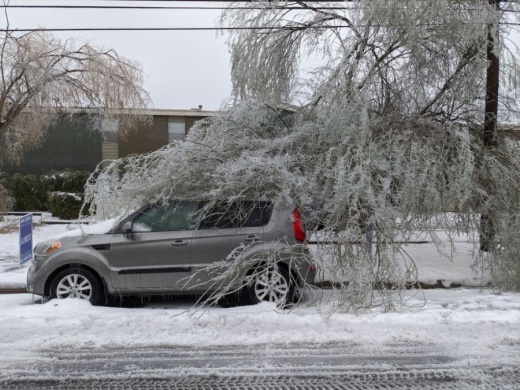Austin Water Director Greg Meszaros said between 200 and 400 apartment and condo complexes still had no running water as of Feb. 25, as did many single-family homes, due to the “tens of thousands” private water main breaks across the city. On the public side, Meszaros said his team was overwhelmed with hundreds of public main breaks, a workload typically seen over a six- to eight-month period.
As necessary and costly infrastructure repairs pile up for residents, Austin City Council took its initial steps toward recovery during its Feb. 25 emergency meeting by waiving typical permit requirements for plumbing as well as fees related to infrastructure repair and tree-limb removal.
With a seemingly insurmountable number of repairs needing to be made to private water lines, Denise Lucas, director of Austin’s Development Services Department, said the goal of some of the waivers was to increase the number of available plumbers who can legally operate in the local market.
District 10 Council Member Alison Alter said there has been an effort to recruit plumbers from across the country to Austin and Texas in the wake of the storm’s devastation.
The ordinance to waive the permitting requirements and fees extends through March 31; however, City Council signaled that it could extend the deadline during its May 20 meeting.
Meszaros said Austin Water has moved $1 million in its budget to help fund private repairs for Austinites.
Local leaders and utility officials have already confirmed to city residents that they would not see spikes in their utility bills as a result of the winter storms—something residents in other parts of Texas have experienced. City Council took the additional step Feb. 25 to waive all late fees on utility bills.
City Manager Spencer Cronk will now be tasked with leading the local effort of reinforcing city systems against the damage brought on by the storms.
District 4 Council Member Greg Casar requested that a list of the complexes without water be compiled and that the city target those complexes with additional water assistance, such as bringing truckloads of potable and nonpotable water—for toilet flushing. For low- and moderate-income residents, Casar also requested the city support those residents in ensuring the water main fixes are done promptly.
Alter asked for a report on why the city did not lean on its reverse 911 system sooner to alert residents of power and water outages, and District 5 Council Member Ann Kitchen said Cronk should recommend ways to improve the city’s disaster response and notification systems.
City Council is scheduled to meet again March 4. Cronk is expected to bring back a report on his findings at that meeting.





